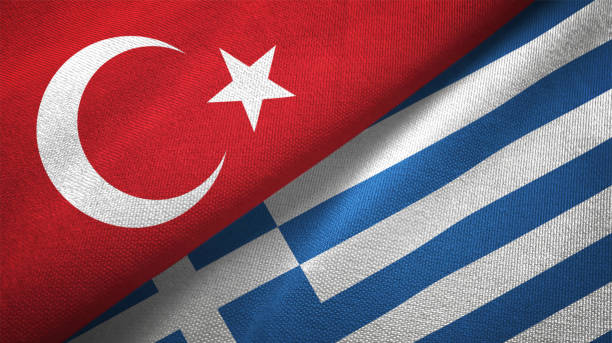
Turkey and Greece’s disputes over maritime boundaries, territorial waters, and the rights to exploit natural gas and oil reserves in the Eastern Mediterranean are more important than ever. The European Union has an energy deficit due to the Russo-Ukrainian war, which requires reliable suppliers. Improving relations between Turkey and Greece is in the European Union’s interest, as the resources in the contested Eastern Mediterranean could solve the energy deficit.
Tensions between Turkey and Greece have escalated in the Eastern Mediterranean. The disagreements between Turkey and Greece primarily revolve around delineating their exclusive economic zones (EEZs) in the Eastern Mediterranean and the extent of Greek territorial waters in the Aegean Sea. Turkey contests the status of several Greek isles and islands, arguing over their sovereignty and the maritime rights they grant. The situation took a decisive turn with the discovery of significant gas reserves by Israel and Cyprus, prompting Turkey to assert its presence by deploying drilling ships into contested waters, thus escalating the tensions into an active crisis. In August 2020, Turkey sent the Oruc Reis research vessel, under the protection of warships, to conduct hydrocarbon exploration in areas between Crete and Cyprus waters that Greece claims. In response, Greece mobilised its naval forces in the region. This military standoff heightened the risk of a broader conflict and jeopardised energy projects and regional security.
Legal ambiguities and the lack of a generally accepted framework to resolve them worsen the maritime claims at the centre of this dispute. Greece bases its claims on the Seville Map, which extends significant maritime rights to its islands, a stance Turkey views as unjust. Turkey has not ratified the United Nations Convention on the Law of the Sea (UNCLOS), which establishes the legal framework for maritime disputes, complicating this disagreement even more. As a result, Turkey is at a legal disadvantage despite contesting the convention’s implications for Turkish maritime rights.
In 2019, Ankara made a contentious agreement with the Government of National Accord (GNA) in Tripoli to define maritime boundaries. Greece has disputed this agreement, claiming it violates its territorial rights and the UNCLOS. In 2020, Greece retaliated by signing an accord with Egypt to maintain its maritime borders, directly opposing Turkey’s claims.
The conflict over maritime boundaries and resource exploration rights has not only strained Turkish-Greek relations but also poses a significant challenge to the European Union’s future energy security. The stakes are heightened by the EU’s reliance on Russia for oil and gas. The EU has imported around 130 million barrels of refined products, predominantly diesel, from refineries processing Russian crude. Despite EU sanctions, this import has indirectly facilitated an estimated €1.1 billion in direct tax revenues for the Kremlin. This oil laundering sees countries like India and Turkey legally selling Russian oil products to the EU. This continued dependence makes the EU vulnerable and shows the need for new energy sources. If the EU can support the stabilisation of Turkey-Greece relations, energy projects in the area may provide energy security to the EU.
Another reason the EU should do everything in its power to improve Turkey-Greece relations is that conflict between Greece, an EU and NATO member, and Turkey, a NATO member and EU candidate country, has broader implications for European security and NATO’s cohesion. Russia poses a security risk to European security, so unity within NATO and the EU is more important than ever. Ensuring exchange between Greece and Turkey could help refocus on common threats and strengthen European security.
The EU’s relationship with Turkey is key, raising critical strategic questions, particularly regarding Russia and China. The decision to view Turkey as a partner or an adversary will significantly influence the EU’s ability to respond to China and Russia’s growing power. For example, closer cooperation between Turkey and the EU could reduce dependence on Chinese supply chains, thereby improving the EU’s autonomy. Improving relations between Greece and Turkey, and by extension between Turkey and the EU, is very complex. The disputes are rooted in sovereignty and territorial rights, which require careful negotiation.
In conclusion, this conflict is not only a bilateral issue. The European Union should address these tensions and cultivate a closer relationship with Turkey to ensure energy security and NATO cohesion.
By The European Institute for International Relations















